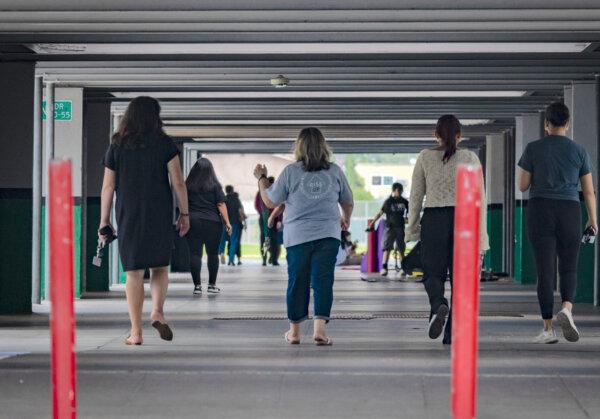The governor celebrated the passage and recent signing of several laws that he claims support women, children, and families.
The bills include new regulations for maternal mental health screenings, support for survivors of human trafficking, regulations on menstrual products, prenatal and postpartum care for prisoners, and health care coverage for rape and sexual assault victims.
The new laws also support victims of revenge porn, protect kids from social media addiction, and limit smartphone use in classrooms. Some of the new laws also address gender-based violence and expand requirements for healthy foods in schools.
“These bills demonstrate the ongoing work of the Newsom administration and the Legislature to ensure that California is the best state to raise a family,” his office wrote in a press statement on Wednesday.
His wife, Jennifer Siebel Newsom, added that they were working to protect children and empower women.
California Ranking
Meanwhile, California children rank in the bottom third of U.S. states in overall well-being in a study published in June by the Annie E. Casey Foundation, a Baltimore nonprofit that focuses on vulnerable children and families.
The annual report placed California 43rd in economic well-being, 35th in education, 10th in health, and 37th in family and community.
California ranks better than average on metrics such as children in poverty, children without health insurance, child and teen deaths, and teen births.

Staff and students in a hallway at a California school. California is ranked 47th in the U.S. in a national report on raising families. John Fredricks/The Epoch Times
However, 28 percent of children in California live with parents who lack secure employment, compared to the U.S. average of 26 percent. More than 40 percent of California children live in households with a high housing cost burden, compared to 30 percent of children in other states.
In addition, more than half of the state’s 3- and 4-year-old children were not in school, fewer than one-fourth of its eighth-graders were proficient in math, and a growing percentage of California children are also not proficient in reading. However, these figures were only slightly worse than the national average.
The firm considered 16 criteria in four categories: health and safety, education and child care, affordability, and socioeconomics.
Massachusetts ranked best in the United States to raise a family in 2024, followed by Vermont and North Dakota.
“Massachusetts sets a high bar for family-friendly living, making it a highly desirable location for families seeking a well-rounded and enriching environment,” according to the report.
Nevada ranked last, landing near the bottom in education, child care, and socioeconomics.
Can you please rewrite this sentence?
Source link







